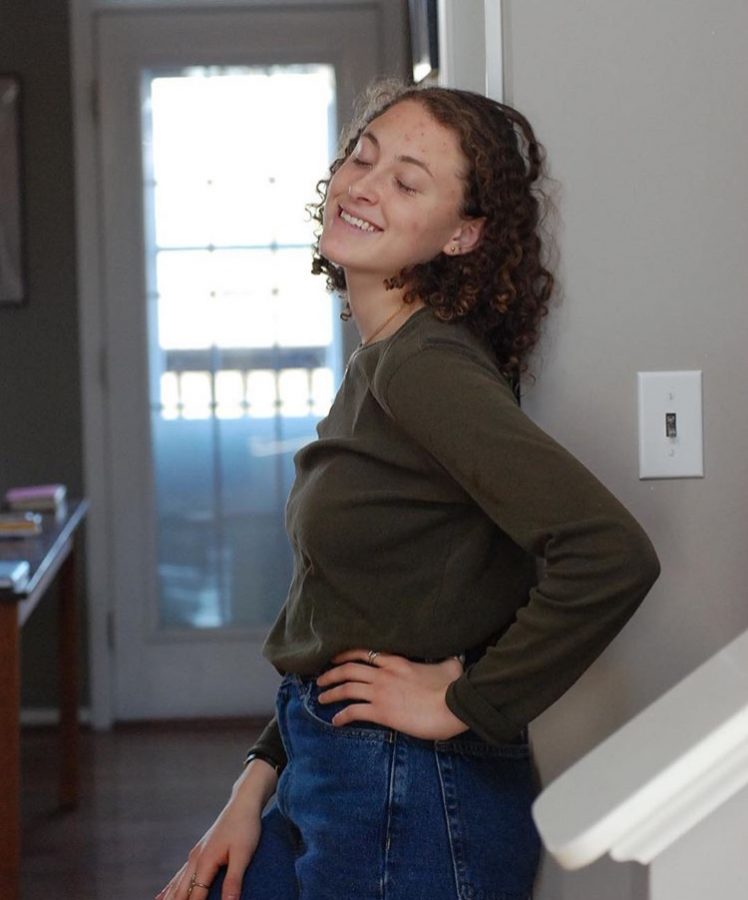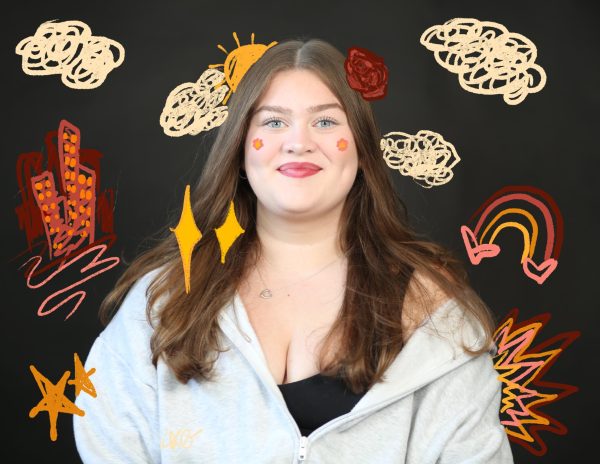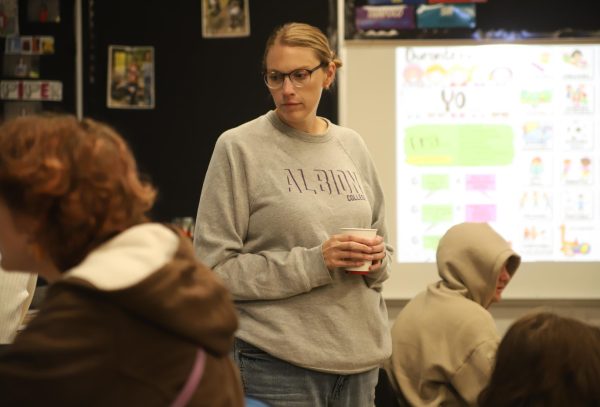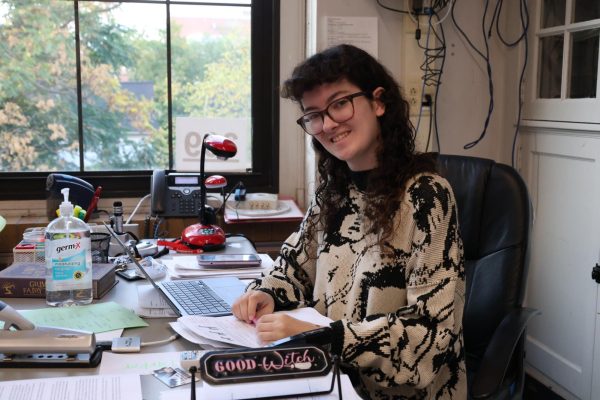Living with an Unnecessary Prescription
It was just a day at the doctor’s office. Eight-year-old Grace Krueger sat at a short table, putting together puzzles that the doctor had put in front of her. Her parents had told her she was coming in to do some tests. At the time, she did not think much of it. It was all fun and games.
When the appointment was over, the doctor told her and her parents that she was diagnosed with Attention Deficit Hyperactivity Disorder (ADHD); she was classified as a ‘Predominantly Inattentive Type,’ a subcategory of ADHD. She had no idea what that meant.
All she knew was that she had to take one pill of Adderall every day, a drug that helps regulate the neurochemistry behind hyperactive and inattentive behavior. Her parents told her that it would help treat her.
None of that mattered to Krueger’s third-grade self. She was a kid; she liked to play and draw and read, just like other kids. She had playdates with friends. She was smart, and she excelled in school. She was happy, and everything felt great.
It was only later in middle school when she realized that something seemed off. As she flipped through a book of photos that her dad took of her through the years, she realized a scary trend that started when she got on medication: she became skin and bones.
“Adderall suppresses your appetite as a side effect,” Krueger said. “It made me not want to eat, but I had to. I was forcing myself to eat, and it didn’t feel right.”
As she got older, she started questioning her dependence on the drug. She did not feel like she had an attention problem. She could pay attention in class. She got great grades. She did not feel like she needed it. It was a bold question, yet it continued to fester inside her: did she really have ADHD?
Krueger is one of almost a million kids in the United States who are estimated to be misdiagnosed with ADHD. A study conducted by Michigan State University Economics professor Todd Elder found that an estimated 20 percent of the 4.5 million kids diagnosed with ADHD are misdiagnosed.
Many of these kids are diagnosed at a young age in which it is hard to distinguish between disability and maturity; the study found that younger kindergarten kids are 60 percent more likely to be diagnosed with ADHD than older kids in the same grade.
On top of that, ADHD is hard to diagnose. It shows symptoms that are exhibited in other disorders, including mood swings, problems with sleeping, and anxious behavior. It can also be looked over in patients that are already diagnosed with clinical depression and anxiety.
“It was odd that I was diagnosed so young because you can’t expect [kids] to sit still and do stuff,” Krueger said.
It was all too confusing. Krueger went to a psychiatrist to try to treat her eating problem, but her condition puzzled the doctors. She did not show usual symptoms of eating disorders, like being insecure about body size or shape.
“Whenever I would talk to psychiatrists, when I was not feeling good, it was hard because the thing I had trouble with was eating,” Krueger said. “They would ask me ‘Do you like your body?’ And I would say ‘Yeah. I don’t care about my body. It is fine. It is not that I want to be skinny. It’s just something else.’”
By her junior year of high school, her inhibition had grown to its limits. She had just taken an AP English test. That morning, instead of taking one pill, she decided to take two to help her focus better, potentially to get a better score.
“It made me feel like I was cheating taking it,” Krueger said. “I know a lot of people who take it and are only using it to perform better. It makes me so sad. I don’t like to see people abuse it like that because of how it made me feel. I felt like I was doing something wrong, yet simultaneously I felt like I had to.”
After the test, her anxiety was through the roof. She felt horrible. She had no appetite and had to force herself to eat. She felt like the drug was a crutch that she never needed in the first place.
It was time for a change.
Krueger stopped taking Adderall cold turkey. In the absence of a constant stimulus, she swiftly dropped into a depressive state. She knew that cutting off the medication would take a large toll on her mental health, as her body struggled to get used to a new chemical environment.
“I thought to myself ‘What the hell is this?’,” Krueger said. “I am a happy person. I actually love life. I was confused.”
Her appetite did not return right away, either. Compounded with her mental state, she still found herself forcing each meal down her throat. It took her over a half a year to start to regain her mind and body again.
“I thought to myself ‘It’s summertime, it is warm outside, I should be able to eat now that I am not taking Adderall,’” Krueger said. “But that was not working.”
Now, Krueger is a 17-year-old Senior at Skyline High School. She has been off medication for over a year and is proud of her process. She finally feels freed from the confines of the drug; her appetite has slowly come back after years of eating too much yet never enough; she is less anxious than ever before; she smiles and laughs and feels alive.
“To the people who have been diagnosed, just know that you don’t have to depend on it if you don’t want to,” Krueger said. “You are smart, with or without it. It doesn’t help you become smarter, it helps your attention. And also, be careful about your eating. If you are not happy, you don’t have to take it.”









